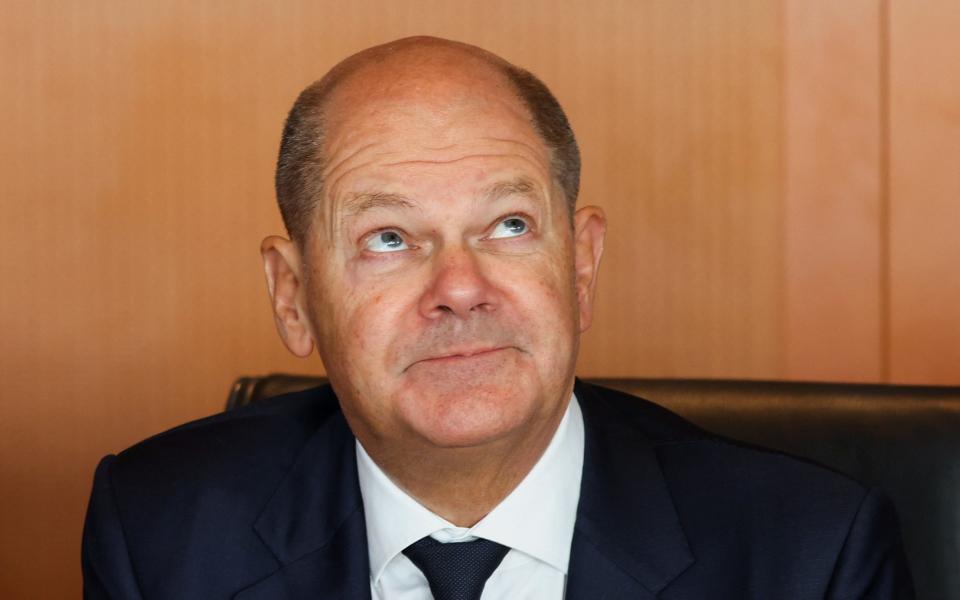Germany on the brink as Greece enjoys mini-boom

Germany is tumbling towards recession as Greece enjoys a mini economic boom, in a reversal of fortunes from the crisis that pitted Berlin against Athens a decade ago.
Top economists have downgraded their forecast for German growth as a closely watched private sector survey pointed to a continued contraction in the country’s economy.
By contrast, the International Monetary Fund has upgraded its forecast for growth in Greece this year as it said the “outlook has improved notably”.
Economists at Germany’s esteemed Ifo Institute slashed forecasts for the country’s prospects, warning it will grow by only 0.7pc this year, not the 0.9pc predicted just a month ago.
Timo Wollmershäuser, head of forecasts at the IFO Institute, said the revision was driven by a legal block on plans to use emergency Covid borrowing to fund spending this year. The constitutional court’s decision will curtail spending by Berlin and make things tougher for German citizens and businesses.
Mr Wollmershäuser said: “Now that the German parliament’s budget committee has agreed on the federal budget, we estimate that it passed additional savings of just under €19bn.
“Companies and households will carry a greater burden or receive less relief, and government spending will be cut.”
Separately, the purchasing managers index (PMI), a survey of businesses, showed economic activity in Germany shrank for the seventh consecutive month in January.
The index fell from 47.4 in December to 47.1. Any score of below 50 indicates a contraction, so this drop represents an acceleration in the private sector’s decline.
Germany has been struggling with the loss of cheap energy from Russia as well as weak demand from China, a key trading partner. Disruption in the Red Sea caused by attacks on civilian ships by Houthi militia is also impacting German supply chains.
Official figures show the eurozone’s largest economy contracted by 0.1pc in the third quarter of last year and by 0.3pc over 2023 as a whole. If GDP falls again in the final three months of 2023, Germany will have fallen into technical recession.
By contrast the Greek economy is buoyant. The International Monetary Fund said the country is now on track for growth of 2.3pc in 2023 and 2.1pc in 2024.
The Washington-based fund said: “Greece’s economic outlook has improved notably. After a strong post-pandemic recovery, economic activity remained robust.
“Real GDP is expanding beyond its pre-pandemic trend level, driven by strong tourism recovery, and strengthening investment catalysed by Next Generation EU funding and foreign direct investment inflows.”
The Greek banking system, once the source of so much pain, is now “resilient” as lenders improve their balance sheets. Public finances are also improving.
The IMF said: “Strong growth and high inflation have brought the public debt-to-GDP ratio down below its pre-pandemic level.”
The divergent economic fortunes of Greece and Germany come more than a decade after the eurozone sovereign debt crisis, which swept through much of the Continent in the aftermath of the credit crunch.
Greek banks ran into trouble and the indebted government lost the ability to borrow in financial markets. Athens was forced to seek financial help from the IMF and European institutions.
The loans helped stop the country from falling out of the eurozone, but came with very strict conditions – largely blamed on Germany – that provoked widespread protests and multiple changes of government.
Germany was able to dictate terms because of its economic strength at the time, which made it the engine room of European growth.
Meanwhile, France’s PMI showed the economy in a steeper decline, as its survey score fell to 44.2, well below the 50-mark that divides expansion from contraction.
Recommended
How debt-laden Germany put ‘the periphery’ in Europe’s economic driving seat
